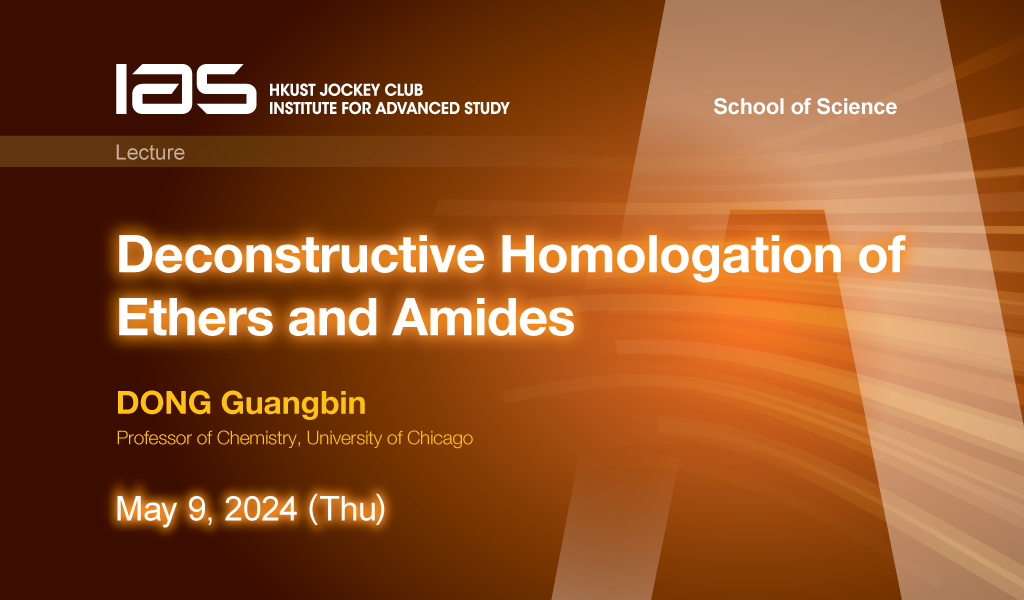
Abstract
Preparation of diverse homologs from lead compounds has been a common and important practice in medicinal chemistry. However, homologation of many functional groups, such as ethers and amides, remains challenging. In this lecture, deconstructive strategies to enable homologation of ethers and amides are discussed. First, the method involving boron-insertion into alkyl ether bonds is realized through a Ni/Zn tandem catalysis. The organoborinate intermediates allow direct modification of the skeletons of ethers, including ring expansion and O-to-N editing. The reaction goes through a cleavage-and-then-rebound mechanism. This study further inspires the development of modular synthesis of monocyclic 1,2-azaborines, which is an important isostere of benzene. On the other hand, a hook-and-slide strategy for homologation of tertiary amides with tunable lengths of the inserted carbon chain is introduced. Alkylation at the α-position of the amide (hook) is followed by highly selective branched-to-linear isomerization (slide) to effect amide migration to the end of the newly introduced alkyl chain; thus, the choice of alkylation reagent sets the homologation length. The key step involves a carbon-carbon bond activation process by a carbene-coordinated rhodium complex with assistance from a removable directing group. The approach is demonstrated for introduction of chains as long as 16 carbons and is applicable to derivatized carboxylic acids in complex bioactive molecules.
About the Speaker
Prof. DONG Guangbin received his BS in Chemistry in 2003 at Peking University and completed his PhD training in Chemistry in 2009 at Stanford University. He conducted his postdoctoral studies at the California Institute of Technology. In 2011, he joined the faculty at the University of Texas at Austin, where he became an Assistant Professor in the Department of Chemistry. Currently, he holds the position of Professor at the University of Chicago.
Prof. Dong and his research team focus on 1) pushing the boundary of C-C bond activation for efficient synthesis of complex organic molecules; 2) rendering the metal/norbornene cooperative catalysis as a useful tool for pharmaceutical research; 3) tackling challenges in synthesis of complex bioactive natural products; 4) developing compact molecular synthesizers for automated organic synthesis and 5) realizing programmable synthesis of monodisperse sequence-defined graphene nanoribbon materials.
Prof. Dong is the recipient of 2024 Elias J. Corey Award for Outstanding Original Contribution in Organic Synthesis by a Young Investigator, 2021 Tetrahedron Young Investigator Award, and 2018 Mr and Mrs Sun Chan Memorial Award in Organic Synthesis.
For Attendees' Attention
Seating is on a first come, first served basis.

Professor of Chemistry, University of Chicago


